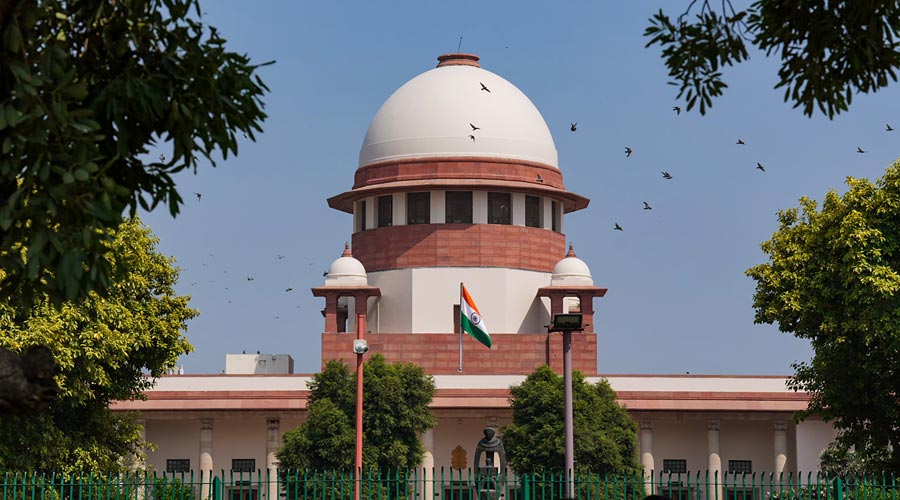The Supreme Court bench, which is hearing arguments on a batch of pleas seeking legal sanction for same-sex marriage, observed on Thursday people are moving away from the notion that one must have a male child and this is due to the spread and impact of education.
Chief Justice D Y Chandrachud, who is heading the five-judge constitution bench which is hearing the matter, also touched upon the notion that only the very highly educated or elitist want fewer children.
"Just as in the case of heterosexual couples now, with the spread of education, the pressures of the modern age, increasingly, couples are either childless or single child couples and therefore you see even populist countries like China now really losing out in demographic dividends as populations are increasingly becoming elderly," said the CJI.
"Why? Because the young who are highly educated do not want to have more children. That's a matter of choice," Justice Chandrachud observed while hearing the matter for the third straight day.
Regarding the notion that it is only the very highly educated or elitist who want fewer children, the CJI said one needs to only talk to the people who work in cities like Delhi.
"You talk to people who are close to you and you find that most of them will say we want to have one child," he said, adding, "My chauffeur has one daughter." "There is certain degree of awareness, also a feeling that well, you know people are moving away from the notion that you must have a boy. That is the spread of education, the impact of education that you may just have a single child," the CJI observed.
The observations by the bench, which also comprises Justices S K Kaul, S R Bhat, Hima Kohli and P S Narasimha, came when senior advocate K V Viswanathan, appearing for one of the petitioners, was advancing his submissions.
The arguments in the matter remained inconclusive and will resume on April 24. During the hearing on Wednesday, the apex court had said the state cannot discriminate against an individual on the basis of sexual characteristic over which the person has no control.
It had asserted that the Centre has no data to back up its claim that the concept of same-sex marriage is "elitist" or "urban".
The Centre, in one of its affidavits filed in the apex court, termed the petitions a reflection of "urban elitist" view for the purpose of social acceptance and said recognition of marriage is essentially a legislative function which the courts should refrain from adjudicating.
Except for the headline, this story has not been edited by The Telegraph Online staff and has been published from a syndicated feed.











